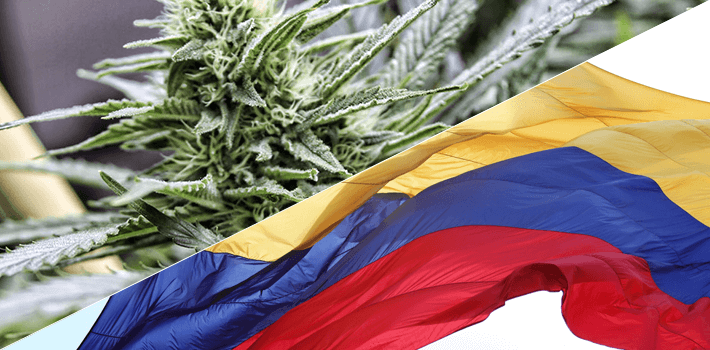Colombian lawmakers eye up adult-use legalization, three years after medical market launch
Three years following Colombia’s enactment of Decree 613 – a law that legalized the medicinal use of cannabis – lawmakers are happy with the progress in regulating cannabis for medical and scientific purposes countrywide.
Since the law was regulated on April 10, 2017, the rules, conditions and obligations for the distribution, export, import, processing and production of cannabis and plant-derived products have been meticulously hashed out. Consequently, notable interest in Colombia’s medical cannabis market has emerged from investors.
Due to the success of Colombia’s medical cannabis industry – which was legalized in July 2017 under Law 1787 – lawmakers are now setting their sights on adult-use legalization. An industry association known as Asocolcanna is currently lobbying for a decree amendment, of which the government is progressively responding to.
Colombia’s adult-use legalization efforts have been tried before
Although adult-use cannabis remains illegal in Colombia – a country renowned for its prolific history of cocaine trafficking and for being the former home of drug kingpin Pablo Escobar – congressional legalization efforts have taken place in the past.
For example, the Congress submitted two adult-use initiatives in 2019 for consideration as a restorative effort to dismantle the thriving black market. While past efforts have been unsuccessful, they did gather a fair amount of support from Colombian lawmakers.
Senator Gustavo Bolívar’s proposal to legalize recreational cannabis received support from 35 congressmen, whereas a separate measure to edit Article 49 of the Colombian constitution – put forward by liberal Congressmen Juan Carlos Losada and Juan Fernando Reyes – gained backing from 18 legislators.
The latter constitutional amendment introduced by Losada and Reyes has been reintroduced this year. In the event that it is voted on successfully, cannabis regulation could help to curb cannabis-related black market activity; believed to cost the Colombian Government approximately 8.8 trillion Pesos ($2.1 billion) annually.
Aside from saving the government money, a legal adult-use cannabis market in Colombia could also open the door for scientific research opportunities, in addition to establishing a taxed and regulated industry that could provide a financial safety net post-pandemic (COVID-19).
Million-dollar companies are participating in Colombia’s cannabis market
It goes without saying that the coronavirus (COVID-19) pandemic has put the breaks on Colombia’s cannabis industry; not to mention many other global cannabis markets. On the other hand, Colombia’s legal weed empire isn’t exactly struggling, what with numerous wealthy companies participating. They include Avicanna, Clever Leaves, Khiron and PharmaCielo.
Although impressive, many industry experts feel that Colombia’s cannabis market could be bolstered if lawmakers tackle a few things: export-related regulations, licensing process delays and available license opportunities.
Since the enactment of Decree 613 went into action, more than 656 licenses have reportedly been distributed among lucky applicants. Included in the awarded batch of licenses were 164 for psychotropic cannabis cultivation and 394 for non-psychoactive plant cultivation.
If all goes to plan, Colombia’s cannabis industry could create more than 41,000 jobs by 2030; based on a report by Bogotá-based public policy auditing firme Fedesarrollo








